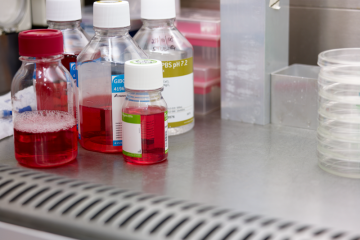Project grant
Developing Human Skin Microbiota Models to Replace Rodent Studies and Explore Host-Microbe Interactions

At a glance
In progress
Award date
December 2024 - November 2026
Grant amount
£376,082
Principal investigator
Dr Holly Wilkinson
Co-investigator(s)
Institute
University of Hull
R
- Replacement
